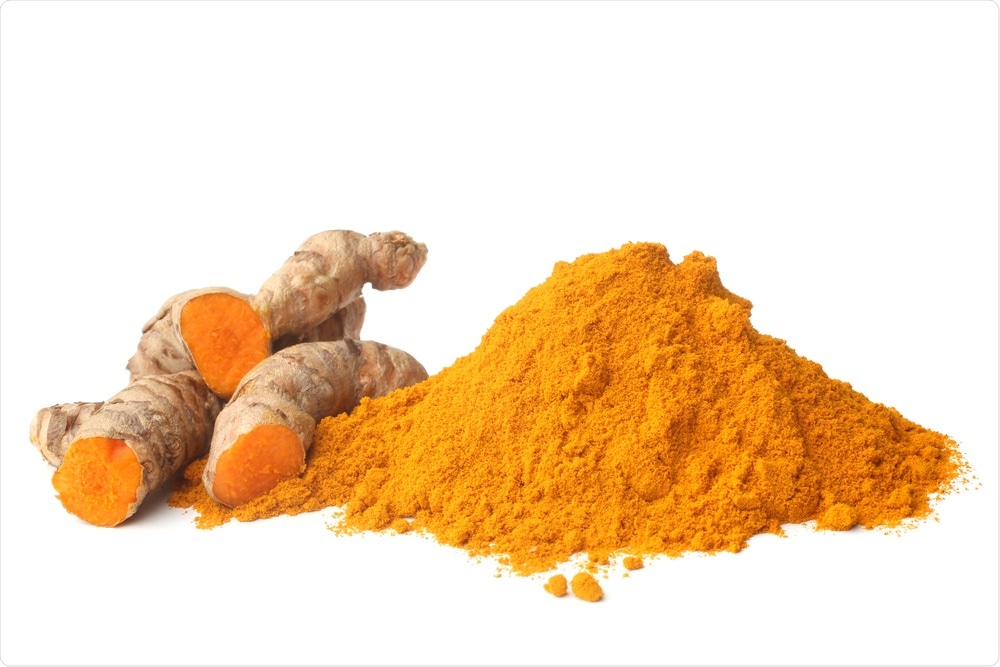Curcumin, a natural compound found in the spice turmeric, could help eliminate certain viruses, research has found.

Curcumin is a bright yellow chemical produced by Curcuma longa plants. It is the principal curcuminoid of turmeric (Curcuma longa), a member of the ginger family, Zingiberaceae. It is sold as an herbal supplement, cosmetics ingredient, food flavoring, and food coloring.. Image Credit: Olga Popova
Infection with TGEV causes a disease called transmissible gastroenteritis in piglets, which is characterised by diarrhea, severe dehydration and death. TGEV is highly infectious and is invariably fatal in piglets younger than two weeks, thus posing a major threat to the global swine industry.
There are currently no approved treatments for alpha-coronaviruses and although there is a vaccine for TGEV, it is not effective in preventing the spread of the virus.
To determine the potential antiviral properties of curcumin, the research team treated experimental cells with various concentrations of the compound, before attempting to infect them with TGEV. They found that higher concentrations of curcumin reduced the number of virus particles in the cell culture.
The research suggests that curcumin affects TGEV in a number of ways: by directly killing the virus before it is able to infect the cell, by integrating with the viral envelope to 'inactivate' the virus, and by altering the metabolism of cells to prevent viral entry.
Curcumin has a significant inhibitory effect on TGEV adsorption step and a certain direct inactivation effect, suggesting that curcumin has great potential in the prevention of TGEV infection."
Dr Lilan Xie, Study Lead Author and Researcher, Wuhan Institute of Bioengineering
Curcumin has been shown to inhibit the replication of some types of virus, including dengue virus, hepatitis B and Zika virus.
The compound has also been found to have a number of significant biological effects, including antitumor, anti-inflammatory and antibacterial activities. Curcumin was chosen for this research due to having low side effects according to Dr Xie.
They said: "There are great difficulties in the prevention and control of viral diseases, especially when there are no effective vaccines. Traditional Chinese medicine and its active ingredients, are ideal screening libraries for antiviral drugs because of their advantages, such as convenient acquisition and low side effects."
The researchers now hope to continue their research in vivo, using an animal model to assess whether the inhibiting properties of curcumin would be seen in a more complex system.
"Further studies will be required, to evaluate the inhibitory effect in vivo and explore the potential mechanisms of curcumin against TGEV, which will lay a foundation for the comprehensive understanding of the antiviral mechanisms and application of curcumin," said Dr Xie.
Source:
Journal reference:
Li, Y., et al. (2020) Antiviral and virucidal effects of curcumin on transmissible gastroenteritis virus in vitro. Journal of General Virology. doi.org/10.1099/jgv.0.001466.